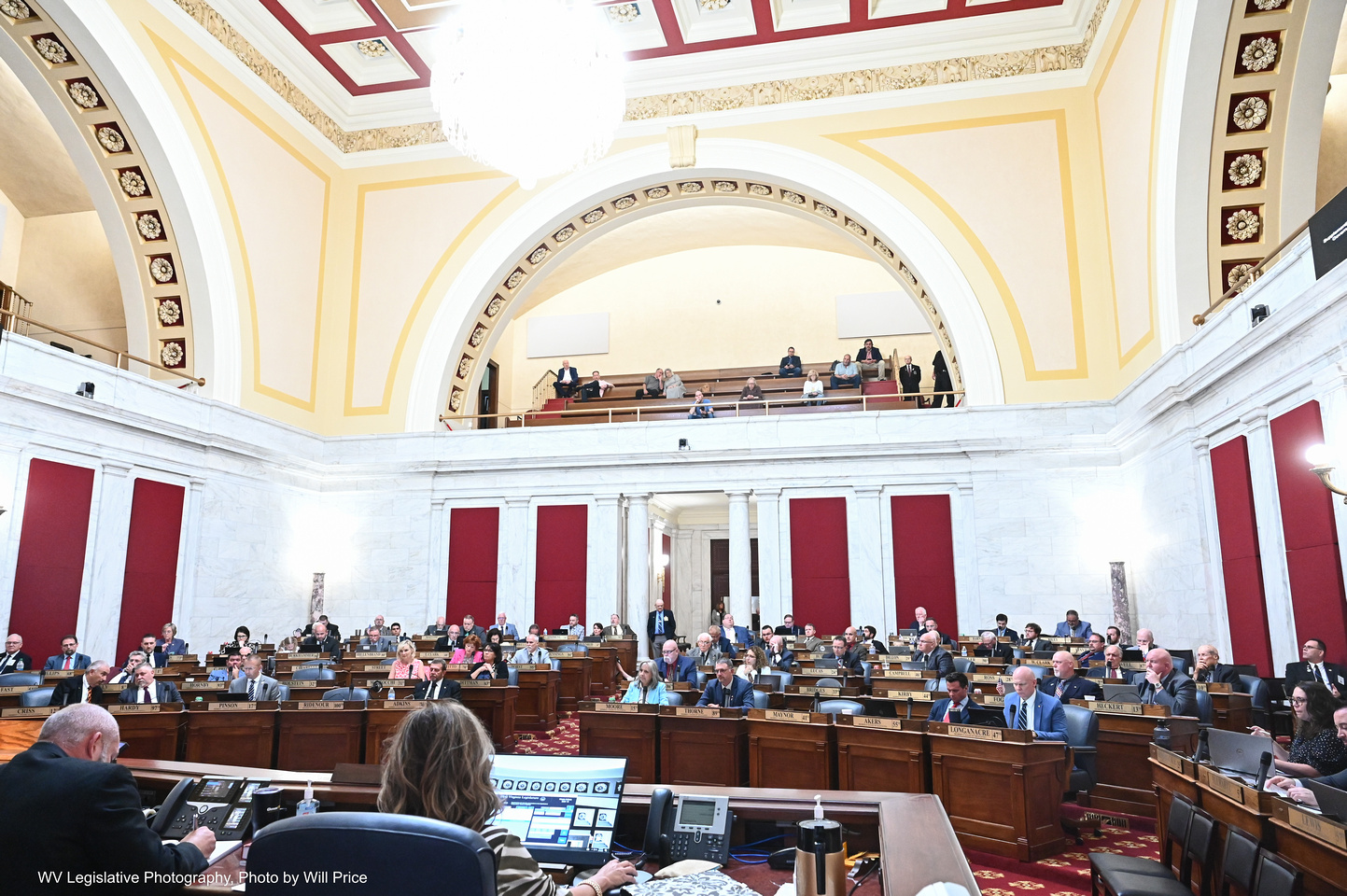Updated on Monday, May 20, 2024 at 6 p.m.
The West Virginia Senate approved of the amendment made by the House of Delegates to Senate Bill 1015. The bill has passed and the rainy day funding formula has been revised.
Original Story
The West Virginia House of Delegates passed a Senate bill Monday that makes changes to how much money is set aside into the state’s rainy day funds. For the bill to become law, the Senate must concur with an amendment.
Rainy day funds A and B together have approximately $1.25 billion. The current funding formula requires them to have 20 percent of the operating budget, budget surplus and any supplemental appropriations.
The rainy day fund is necessary, generally, but also important to the bond agencies that allow the state to issue bonds and raise money for large projects. A stable rainy day fund means better bond ratings. In consumer terms, this is the equivalent of having a healthy savings account and a high credit score.
The bill that passed the House Monday, Senate Bill 1015, by a slim margin, changes that to 20 percent of the operating budget alone, meaning the state will only need to set aside about $934 million.
Del. Bob Fehrenbacher, R-Wood, said he felt the rest could be spent on state projects.
“I think what that does, it gives us as the legislators the burden to be good financial stewards and whether or not we can redirect it to investments to infrastructure to personal income tax reductions. That’s the challenge that we have to use.”
House Finance Committee Chairman Vernon Criss, R-Wood, explained that the state is receiving 5.6 percent interest on Rainy Day A and Rainy Day B has a 6.7 percent yield.
“If you’re concerned about continuing to reduce your personal income tax, then we need to generate more in our economy,” Criss said. “So far over the last six or seven years, our biggest ability to do that is with our own dollars, our own investment dollars. We allow the agencies to go forth, to go to private enterprise and cut a deal to bring them here. And now we’re seeing the fruits of our labor, because we’ve had those dollars available to do that. So if you want to continue to help get your personal property or personal income tax cut rates, we need more economy, we need to drive more jobs here, more businesses here.”
Criss noted a period in 1989 when the state was in serious financial trouble.
“We went through a time period because of a change in our tax system that we couldn’t pay the bill,” he said. “Because we did not do the proper thing at that time. We cut it off immediately. And when we did that, it disrupted our cash flow. And it disrupted our tax base situation. And it took us a generation, 25 years to get back to the point that we’re going to be okay.”
The bill passed with a vote of 53 to 40 and returns to the Senate for its concurrence.
Criss also said the state expects approximately $750 million in excess revenue at the end of this fiscal year. Another special session in August to distribute that money is possible.
